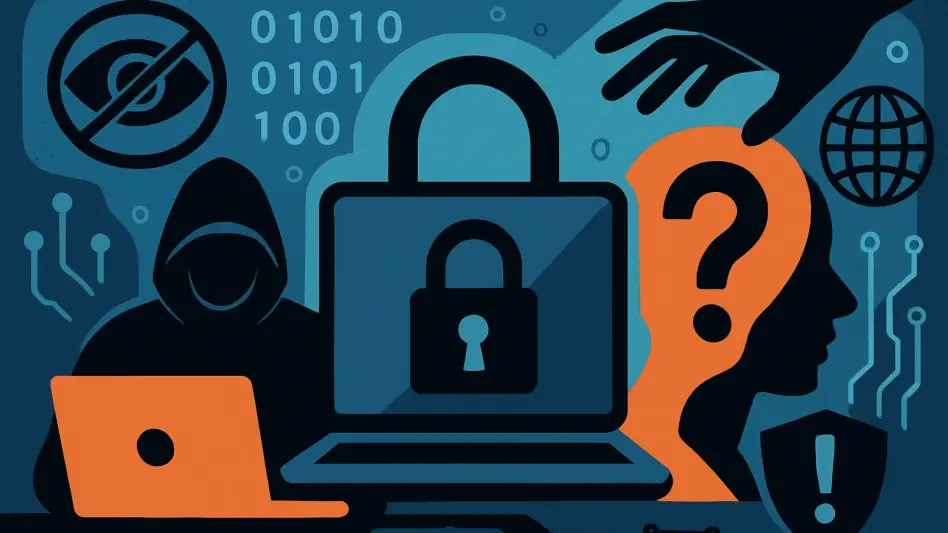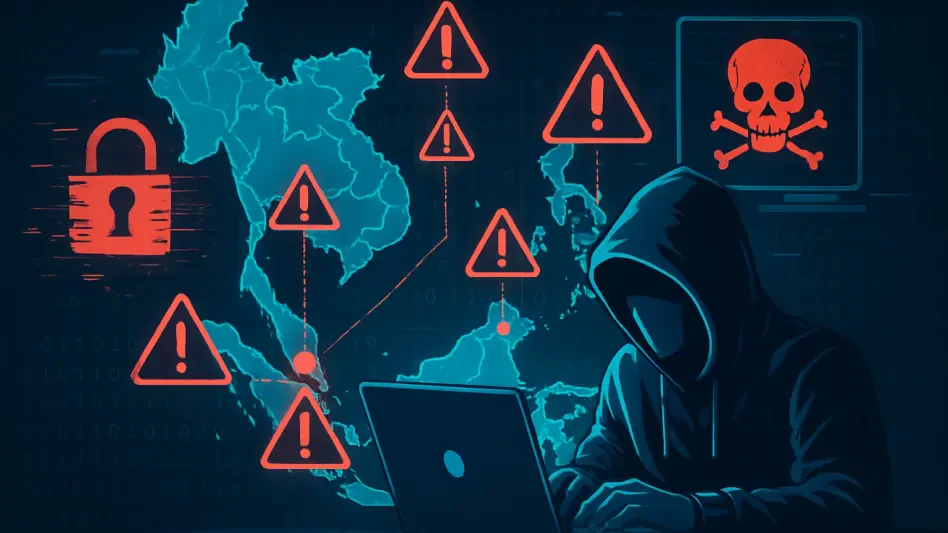The 2015 Cybersecurity Information Sharing Act (CISA) is nearing its expiration, prompting a wave of advocacy efforts for its renewal. Enacted nearly a decade ago, this legislation has been vital in promoting cybersecurity threat-sharing between companies and the government. Initially celebrated as a groundbreaking law, the 2015 CISA provided significant protections for companies that voluntarily shared threat intelligence data, including federal antitrust exemptions and shields against disclosure laws.
The Importance of the 2015 CISA
Landmark Legislation
The 2015 CISA established a structured legal framework for sharing cybersecurity threat information between industry stakeholders and government entities. This cooperation was incentivized through protections against certain legal liabilities, encouraging active participation in threat intelligence sharing. The unparalleled collaborative effort intended to streamline defenses against cyber threats by fostering trust and cooperation among various organizations that might otherwise be reticent about sharing sensitive information.
Furthermore, by creating a secure legal environment, CISA effectively addressed one of the major impediments to sharing datthe fear of legal repercussions. This law, in essence, provided a common ground where companies could voluntarily collaborate with the government, setting up a secure channel for exchanging threat intelligence. As cybersecurity threats grow more sophisticated and frequent, the significance of such a structured communication framework cannot be overstated.
Legal Safeguards
Companies benefited from federal antitrust exemptions and shields against state and federal disclosure laws, which allowed them to share critical cybersecurity information without fear of legal repercussions. These safeguards played a crucial role in fostering a collaborative cybersecurity environment. For instance, firms that might have been hesitant to disclose potential vulnerabilities or breaches due to fear of litigation found themselves protected under the stipulations of CISA.
Moreover, these legal protections were not merely theoretical; they established robust foundations for practical information-sharing communities. For firms, this meant not only enhanced protection against cyber threats but also the ability to leverage collective intelligence to preemptively address potential attacks. This collaborative protective mechanism became a cornerstone in collective cybersecurity defense strategies, illustrating the Act’s pivotal role in the industry’s operational landscape.
Challenges to Reauthorization
Legislative Hurdles
Renewing the 2015 CISA faces several challenges, including uncertainties around legislative leadership roles and a tight legislative timeline. Competing priorities in Congress further complicate the pathway to reauthorization. The law’s impending expiration coincides with a period of significant political flux, wherein legislative schedules are already dense with critical issues vying for attention.
Factors such as changes in committee leadership, shifts in legislative focus, and broader political dynamics can all impact the ease of CISA’s reauthorization process. With issues ranging from healthcare to national defense taking precedence, finding a suitable window and garnering sufficient bipartisan support for CISA renewal becomes a delicate balancing act. Moreover, as the urgency of the legislation may not be universally understood, maintaining its momentum within congressional debates is an ongoing challenge for advocates.
Privacy Concerns
Privacy concerns, a significant issue during the law’s initial passage, continue to persist. Critics fear potential abuses and mishandling of personal data shared under the act. Despite advocates’ assurances that such concerns have largely not materialized, the current data privacy environment has become even more complex and stringent. With high-profile data breaches and growing public sensitivity to data privacy issues, skeptics question whether adequate safeguards can genuinely be enforced in practice.
Privacy advocates argue that despite protective measures, there remains a risk of overreach where collected data could be misused or inadequately protected, leading to unintentional exposure of sensitive personal information. The balancing act between effective cybersecurity and robust privacy protections is complex. The need to amend and possibly tighten privacy agreements is a crucial consideration for lawmakers seeking to push for the Act’s reauthorization while addressing these perennial concerns.
Impact and Criticisms
Automated Indicator Sharing (AIS) Program
Post-2015, the Homeland Security Department launched the Automated Indicator Sharing (AIS) program to facilitate automated sharing of threat indicators like malicious IP addresses. However, the AIS program faced declining participation and criticism for not delivering high-quality threat information as anticipated. Critics highlighted that the information being shared was often too rudimentary or generalized to be actionable, detracting from its intended purpose of enhancing cybersecurity defenses.
Additionally, the decline in participation reflected broader disillusionments within the industry regarding the efficacy of such initiatives. Some firms found that the quality and timeliness of shared data did not justify the resources needed to engage with the program. Consequently, while the legal framework provided by CISA for threat information sharing remains critical, operational challenges within programs like AIS underscore the necessity to continuously refine and improve implementation mechanisms to ensure they meet industry needs.
Industry Perspectives
Despite the criticisms, the legal protections offered by the 2015 CISA remain crucial for industry operations and future threat-sharing initiatives. Industry leaders and cybersecurity advocates recognize the need to reauthorize the law to ensure continued and enhanced threat intelligence sharing. They view these legal shields as an indispensable aspect of fostering a proactive and collaborative cybersecurity culture which can adapt dynamically to emerging threats.
Industry experts assert that without such legal frameworks, the voluntary flow of information necessary to preemptively counteract cyber threats would likely diminish, weakening collective cyber defense postures. They emphasize that while operational aspects of programs such as AIS might need substantive improvements, the core principles of CISA, particularly its legal safeguards and frameworks for cooperation, remain fundamentally sound and essential.
Calls for Updates and Improvements
Addressing Modern Cyber Threats
While supporting the renewal, many advocates call for updates to the law to better align it with current cybersecurity challenges. This includes expanding definitions to cover a broader range of cyber threats like fraud and scams. The rapidly evolving nature of the cyber threat landscape necessitates continual reconsideration and adjustment of legal instruments to maintain their relevance and effectiveness.
Expanding the scope of threat definitions would enable legislation to encompass a wider array of malicious activities, thereby providing more comprehensive protection. Advocates recommend refining the language within the Act to include emerging threat vectors, ensuring data-sharing protocols address the full spectrum of modern cyber threats effectively. Such updates would help sustain the law’s efficacy against increasingly sophisticated and diverse cyber-attacks.
Clarifying Defensive Measures
Advocates also seek clarification on permissible defensive measures under the Computer Fraud and Abuse Act. These updates aim to ensure the legislation remains relevant and effective in addressing contemporary cyber threats. For instance, clarifying the boundaries of defensive actions, such as retaliatory hacking or preemptive measures, can equip organizations with a clear and lawful framework for their cybersecurity operations.
Moreover, by defining permissible defensive tactics, the Act can help mediate misunderstandings that might otherwise lead to legal disputes or inadvertent breaches of the law. Clarifying these measures thus not only supports more robust and agile defensive strategies but also reinforces industry trust and adherence to shared cybersecurity protocols.
Overarching Trends and Consensus
Strong Support for Reauthorization
A consensus among cybersecurity professionals and industry advocates suggests strong support for renewing the 2015 CISA. The legal framework provided by the law has been instrumental in enabling secure and effective sharing of threat intelligence, a cornerstone of contemporary cybersecurity strategies. The general sentiment is that the cooperative mechanisms fostered by CISA play a crucial role in the modern digital defense landscape, fostering trust and collaboration foundational to national and industrial security.
Furthermore, ongoing advocacy efforts for CISA’s reauthorization underscore the critical importance of maintaining these legal protections. Industry leaders continuously highlight that without the structured support provided by CISA, voluntary information-sharing initiatives might falter, exposing critical digital infrastructures to greater risk. Hence, the urgency for renewal resonates strongly within the cybersecurity community.
Balancing Benefits and Drawbacks
The 2015 Cybersecurity Information Sharing Act (CISA) is approaching its expiration, triggering a surge in advocacy efforts to secure its renewal. Enacted almost ten years ago, this legislation has played a crucial role in enhancing cybersecurity by facilitating the sharing of cyber threat information between private companies and the federal government. At its inception, CISA was hailed as a major advancement, offering substantial protections for businesses that chose to share threat intelligence data. Key benefits included exemption from federal antitrust laws and protection against certain disclosure requirements.
The law’s initial reception highlighted its potential to foster collaboration in defending against cyber threats. However, as its expiration looms, stakeholders are now faced with the challenge of ensuring its continuity. The advocacy for renewal underscores the ongoing need for a robust framework that encourages voluntary information sharing while safeguarding proprietary data and privacy.
Renewing CISA is seen as essential for maintaining and improving upon the security measures that protect our digital infrastructure. Companies and government entities alike recognize the importance of a secure environment where information can be exchanged without fear of legal repercussions. As cyber threats continue to evolve, the renewal of CISA aims to provide ongoing support and protection for both the private sector and public interest in cybersecurity initiatives.







